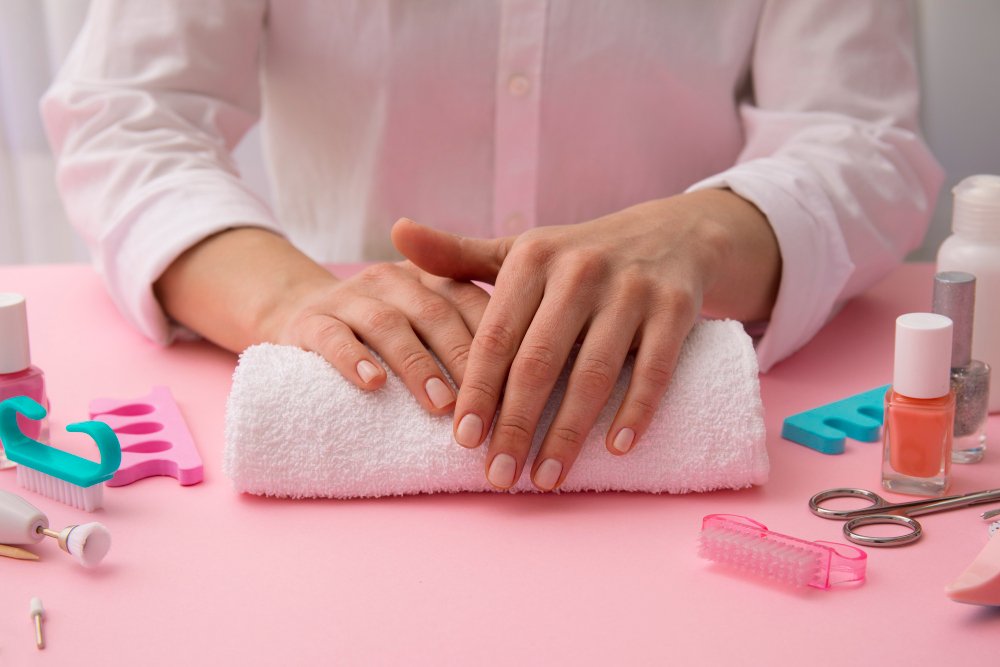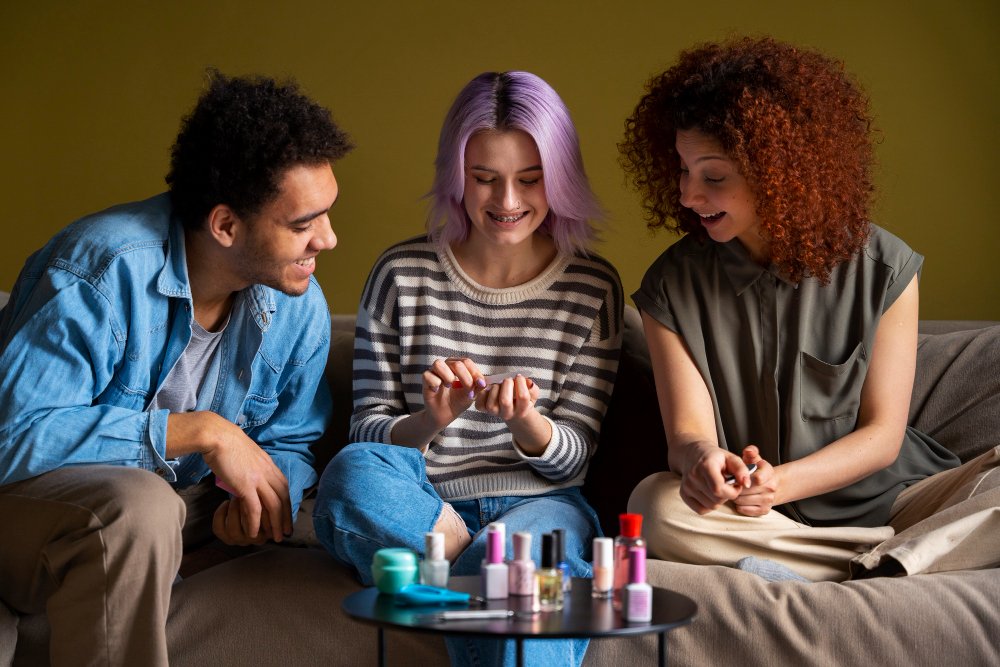We can all agree — sunshine feels amazing. But while soaking up the sun can lift your spirits, too much exposure can take a serious toll on your skin. Without proper protection or care, the aftermath can show up as fine lines, dark spots, and uneven texture, especially on your face and décolleté, where sun damage tends to show first.
If you’re thinking about turning to fillers, lasers, or other pricey and invasive treatments, pause for a moment. Before you go down that road, it’s worth exploring some simple, natural ways to restore and rejuvenate sun-damaged skin — without the needles or high costs.
What Causes Sun-Damaged Skin?

Sun-damaged skin is primarily caused by overexposure to ultraviolet (UV) radiation from the sun. There are two main types of UV rays responsible for this damage:
1. UVA Rays
- Penetrate deep into the skin’s layers
- Contribute to premature aging, wrinkles, and loss of elasticity
- They are present year-round, even on cloudy days, and through windows
2. UVB Rays
- Affects the outer layer of the skin
- Cause sunburns and play a key role in skin cancer development
- Their intensity varies by season, time of day, and altitude
🌡️ How UV Exposure Damages Skin:
When your skin absorbs too much UV radiation, it damages the DNA in your skin cells, leading to:
Increased risk of skin cancer
Fine lines & wrinkles
Hyperpigmentation (dark spots)
Dryness & rough texture
Broken capillaries
What Are the Results of Sun-Damaged Skin?
Too much time in the sun without protection can leave lasting effects on your skin. From visible signs of aging to more serious conditions, here’s what prolonged sun exposure can lead to:
1. Wrinkles and Fine Lines
By the time your skin shows signs of sunburn, most of the underlying damage is already done. UV rays break down collagen and elastin—the proteins that keep your skin firm and smooth. Over time, this leads to the appearance of wrinkles, sagging, and an overall loss of skin elasticity.
2. Sun Spots (Age Spots)
In response to sun exposure, your skin produces melanin to protect itself. But with excessive exposure, melanin can cluster in certain areas, causing flat, dark patches known as sun spots or age spots. These are most common on areas frequently exposed to the sun, like the face, hands, and shoulders.
3. Dry, Dehydrated Skin
UV radiation strips your skin of its natural moisture, leading to dryness, flakiness, and a rough texture. Sun-damaged skin may appear dull, tight, or even ashy, especially if hydration isn’t replenished regularly.
4. Actinic Keratosis (Precancerous Lesions)
One of the more serious outcomes of chronic sun exposure is actinic keratosis—rough, scaly patches that often appear on the face, scalp, or hands. These spots are considered precancerous, and about 1 in 10 can develop into squamous cell carcinoma, a common form of skin cancer if left untreated.
Best Remedies For Sun-Damaged Skin:
1. Apple Cider Vinegar & Onion Juice: A Natural Duo for Skin and Hair Health
Nature often gives us the best remedies in our kitchens, and when it comes to skincare and haircare, few combinations are as talked-about as apple cider vinegar (ACV) and onion juice. This powerhouse pairing can offer a range of benefits when used correctly and safely.

🧅 Why Onion Juice?
Onion juice is rich in:
- Sulfur promotes hair growth and strengthens follicles
- Antioxidants help reduce inflammation
- Antibacterial properties – may reduce scalp infections and acne
Common uses:
- Hair loss remedy
- Scalp health booster
- Some use it to fade dark spots or scars (with caution)
🍎 Why Apple Cider Vinegar?
Apple cider vinegar offers:
- Natural acids that help balance skin pH
- Antibacterial & antifungal properties
- Helps remove product buildup from the scalp
- Can reduce acne-causing bacteria and calm inflammation
Common uses:
- Skin toner (diluted!)
- Hair rinse to add shine and reduce dandruff
- Helps clear clogged pores
2. Coconut Oil
Coconut oil isn’t just a kitchen staple — it’s a beauty essential that’s been trusted for generations. Packed with healthy fats, antioxidants, and antimicrobial properties, this natural oil can work wonders for your skin, hair, and even overall wellness.

✨ Benefits of Coconut Oil for Skin
- Deep Moisturization
Coconut oil is rich in fatty acids like lauric acid, which help lock in moisture and soothe dry, flaky skin. - Soothes Inflammation & Irritation
Thanks to its anti-inflammatory properties, it can calm conditions like eczema, psoriasis, and sunburn. - Natural Makeup Remover
It easily breaks down stubborn makeup while moisturizing your skin — all without harsh chemicals. - Antibacterial Protection
Its antimicrobial effects can help cleanse minor wounds and reduce acne-causing bacteria (though patch testing is a must for acne-prone skin).
💇♀️ Benefits of Coconut Oil for Hair
- Nourishes Dry, Damaged Hair
Coconut oil penetrates the hair shaft better than many other oils, reducing protein loss and making hair softer and shinier. - Scalp Treatment
Massage into the scalp to reduce dandruff, itchiness, and even mild fungal issues. - Tames Frizz and Adds Shine
A small amount can smooth frizz and add a natural gloss without weighing hair down.
3. Lemon Juice

Lemon juice is more than just a kitchen staple—it’s a natural remedy packed with beauty and health benefits. Rich in vitamin C, antioxidants, and natural acids, lemon juice has long been used to brighten and even out skin tone. Its citric acid acts as a natural exfoliant, helping to remove dead skin cells and reduce the appearance of dark spots, acne scars, and dullness. When used cautiously and diluted properly, lemon juice can also fight acne-causing bacteria, though it’s important to patch test and avoid sun exposure afterward due to its photosensitive nature.
In hair care, lemon juice is known to reduce dandruff, control an oily scalp, and naturally lighten hair when exposed to sunlight, leaving it shinier and fresher. Beyond skin and hair, lemon juice offers digestive and immune-boosting benefits. A simple mix of warm water and lemon juice in the morning can support hydration, improve digestion, and cleanse your system. However, due to its acidity, lemon juice should always be used in moderation and combined with soothing ingredients like honey, aloe vera, or oils to avoid irritation. Whether added to a DIY face mask or your daily routine, this zesty fruit can be a refreshing and powerful addition to your natural wellness regimen.
4. Baking Soda

Baking soda, or sodium bicarbonate, is one of the most versatile natural ingredients found in many households—and it’s not just for baking. This gentle alkaline powder offers a range of beauty and wellness benefits when used correctly. In skincare, baking soda acts as a natural exfoliant, helping to slough off dead skin cells and unclog pores, making it a popular remedy for blackheads and acne-prone skin. It also helps neutralize excess oil and balance skin pH, though it should be used with caution to avoid irritation, especially on sensitive skin. For hair care, baking soda can be used as a clarifying treatment to remove product buildup and refresh the scalp, leaving hair feeling lighter and cleaner.
Many people also use it as a natural deodorant, thanks to its odor-neutralizing properties. Additionally, baking soda is a popular ingredient in DIY teeth-whitening pastes and foot soaks for softening rough skin. While it’s incredibly useful, it’s important to use baking soda sparingly and always patch test before applying it to the skin or scalp. Mixing it with soothing ingredients like coconut oil, honey, or aloe vera can help reduce its abrasiveness and make it more skin-friendly. With the right approach, baking soda can be a powerful addition to your natural beauty toolkit.










